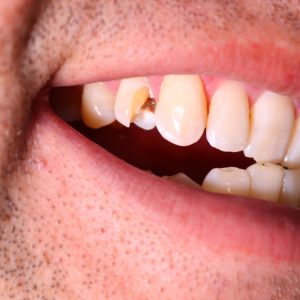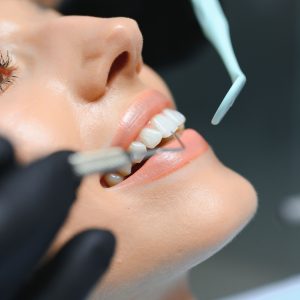Can You Reverse a Cavity?
Tooth decay is one of the most common dental problems in the world. When left untreated, it can lead to a cavity that can cause pain, infection, and even tooth loss.
When you have a cavity, the decayed tissue cannot regenerate on its own. However, tooth decay can be stopped and prevented from progressing further by following proper oral hygiene and visiting your dentist regularly for dental exams and preventative care.
It’s best to practice good preventative care to avoid requiring tooth replacement, such as dental implants.
What is a Cavity?
A cavity is a hole in your tooth caused by tooth decay. Tooth decay happens when bacteria and food debris accumulate on your teeth and form plaque, which produces acid that can eat away at your enamel and dentin.
The early symptoms of a cavity include sensitivity, pain, and discoloration. If you notice any of these signs, it is important to see a dentist as soon as possible.
Can You Reverse a Cavity?
Reversing a cavity is not possible, but preventing them is. Once your tooth decay has caused a cavity, the only way to repair the damage is by having it filled by a dentist.
However, you can stop the progression of cavities by following a proper oral hygiene routine and making some lifestyle changes. For example, reducing your sugar intake, avoiding acidic foods and drinks, eating a healthy diet that is rich in vitamins and minerals, and quitting smoking can all help prevent the development of cavities.

How to Prevent Cavities
The best way to prevent cavities is by following a proper oral hygiene routine. This includes brushing your teeth twice a day for at least two minutes each time using fluoride toothpaste, flossing daily, and rinsing your mouth with an antibacterial mouthwash.
You should also visit your dentist every six months for a dental check-up and cleaning.
Restorative Treatments for Cavities
There are a few restorative treatments for cavities, and the best one for you will depend on the extent of the decay and your dentist’s recommendation.
Dental Fillings
One restorative treatment for cavities is a filling. A filling is a treatment that involves removing the decayed portion of the tooth and filling it with a durable material such as composite resin or porcelain, and sometimes metal.
This treatment halts the bacteria’s progression and prevents further damage to the tooth. A filling does not reverse the cavity, but it does reverse the damage to the tooth.
Crowns
Another restorative treatment for cavities is a crown. A crown is a cap that covers the tooth after the decayed tissue is removed.
A crown is used when the cavity has become so severe that the remaining tooth is unable to support a filling. A crown strengthens the remaining tooth and prevents further decay.
Dental Implants
When a tooth is badly damaged by decay and can’t be saved, dental implants are a restorative option. They’re essentially artificial teeth that are used to replace missing ones.
A small titanium post is surgically placed in your jawbone–this acts as the root of your new tooth. Over time, your bone grows around this post, securing it in place, just like a natural tooth root. Then, a custom-made crown is attached to this post.
The result is a strong, durable, and natural-looking tooth.
Proper Oral Hygiene
Proper oral hygiene is essential for maintaining good oral health and preventing cavities. As mentioned before, it is important to brush your teeth for at least two minutes, ideally twice a day, and floss once a day to remove any food debris and plaque from between your teeth.
Using an antibacterial mouthwash can also help kill bacteria and freshen your breath. It is also important to replace your toothbrush every three to four months or sooner if the bristles become frayed.
Taking Charge of Your Oral Health
Reversing a cavity is not possible. However, the damage done to the tooth can still be stopped and prevented from getting worse. By following a proper oral hygiene routine, reducing your sugar intake, and avoiding acidic foods and drinks, you can promote good oral health and prevent cavities from forming.
Regular visits to your dentist at South Bolton Dental Centre are also important for maintaining the health of your teeth and catching any dental problems early.
Restorative treatments such as fillings and crowns stop the bacteria’s progression and prevent further decay
Remember, prevention is always better than cure, and taking care of your oral health is an investment in your overall well-being. Our practice is currently welcoming new patients, so book your next appointment today!









